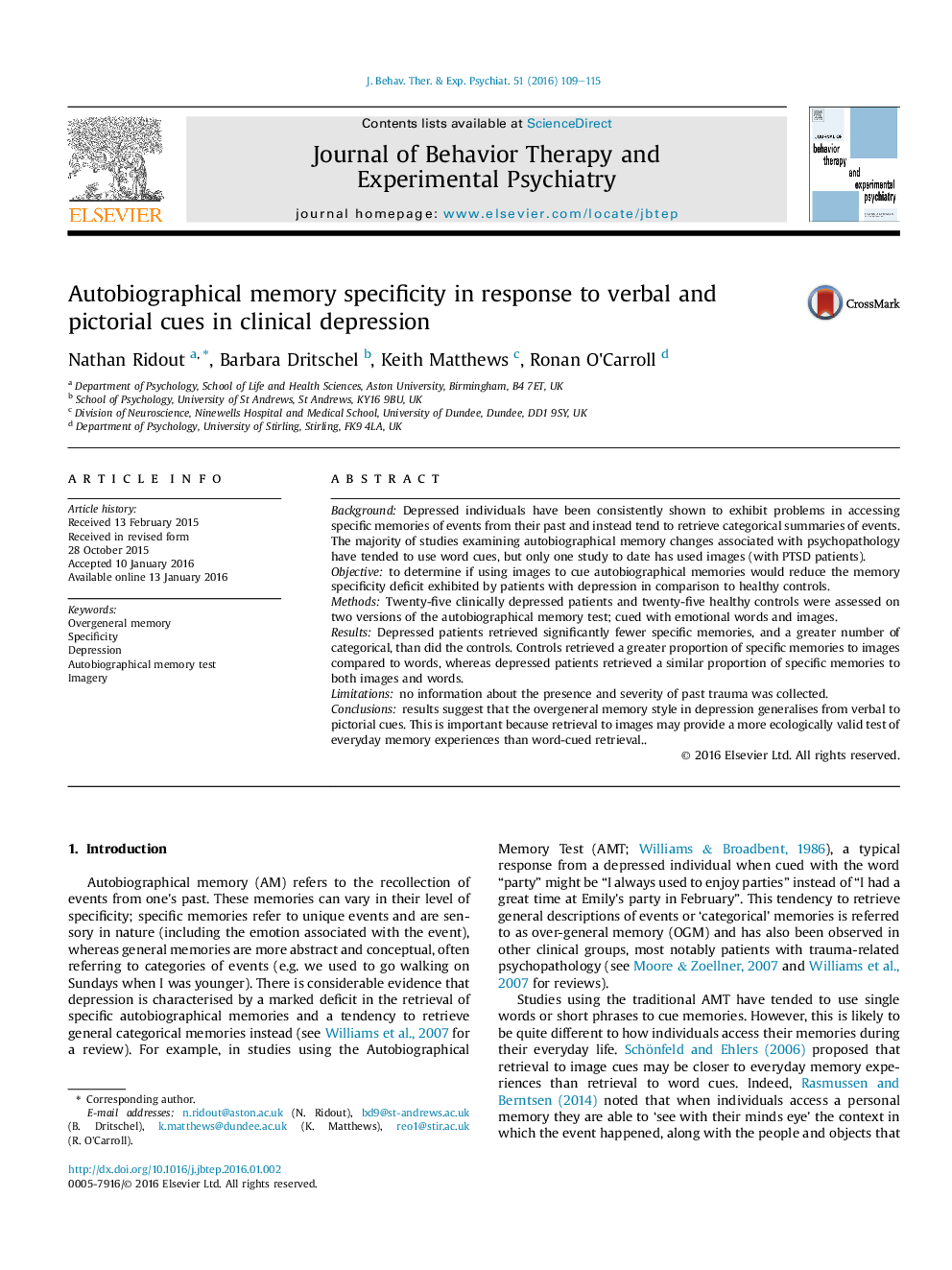| Article ID | Journal | Published Year | Pages | File Type |
|---|---|---|---|---|
| 910273 | Journal of Behavior Therapy and Experimental Psychiatry | 2016 | 7 Pages |
BackgroundDepressed individuals have been consistently shown to exhibit problems in accessing specific memories of events from their past and instead tend to retrieve categorical summaries of events. The majority of studies examining autobiographical memory changes associated with psychopathology have tended to use word cues, but only one study to date has used images (with PTSD patients).Objectiveto determine if using images to cue autobiographical memories would reduce the memory specificity deficit exhibited by patients with depression in comparison to healthy controls.MethodsTwenty-five clinically depressed patients and twenty-five healthy controls were assessed on two versions of the autobiographical memory test; cued with emotional words and images.ResultsDepressed patients retrieved significantly fewer specific memories, and a greater number of categorical, than did the controls. Controls retrieved a greater proportion of specific memories to images compared to words, whereas depressed patients retrieved a similar proportion of specific memories to both images and words.Limitationsno information about the presence and severity of past trauma was collected.Conclusionsresults suggest that the overgeneral memory style in depression generalises from verbal to pictorial cues. This is important because retrieval to images may provide a more ecologically valid test of everyday memory experiences than word-cued retrieval..
